GCK
-
Official Full Name
glucokinase (hexokinase 4)
-
Overview
Hexokinases phosphorylate glucose to produce glucose-6-phosphate, the first step in most glucose metabolism pathways. Alternative splicing of this gene results in three tissue-specific forms of glucokinase, one found in pancreatic islet beta cells and two found in liver. The protein localizes to the outer membrane of mitochondria. In contrast to other forms of hexokinase, this enzyme is not inhibited by its product glucose-6-phosphate but remains active while glucose is abundant. Mutations in this gene have been associated with non-insulin dependent diabetes mellitus (NIDDM), maturity onset diabetes of the young, type 2 (MODY2) and persistent hyperinsulinemic hypoglycemia of infancy (PHHI). [provided by RefSeq, Apr 2009] -
Synonyms
GCK; glucokinase (hexokinase 4); GK; GLK; HK4; HHF3; HKIV; HXKP; LGLK; MODY2; FGQTL3; glucokinase; HK IV; hexokinase-4; hexokinase-D; hexokinase type IV; hexokinase D, pancreatic isozyme; ATP:D-hexose 6-phosphotransferase;
- Recombinant Proteins
- Cell & Tissue Lysates
- Protein Pre-coupled Magnetic Beads
- Human
- Human
- Mouse
- Rat
- Zebrafish
- E. coli
- E.coli
- HEK293
- HEK293T
- In Vitro Cell Free System
- Mammalian Cell
- Mammalian cells
- Sf21
- Sf9 Insect Cell
- Wheat Germ
- Flag
- GST
- His
- His (Fc)
- Avi
- His|GST
- His|T7
- Myc
- DDK
- MYC
- Myc|DDK
- N/A
- N
- No tag
- Background
- Quality Guarantee
- Case Study
- Involved Pathway
- Protein Function
- Interacting Protein
- GCK Related Research Area
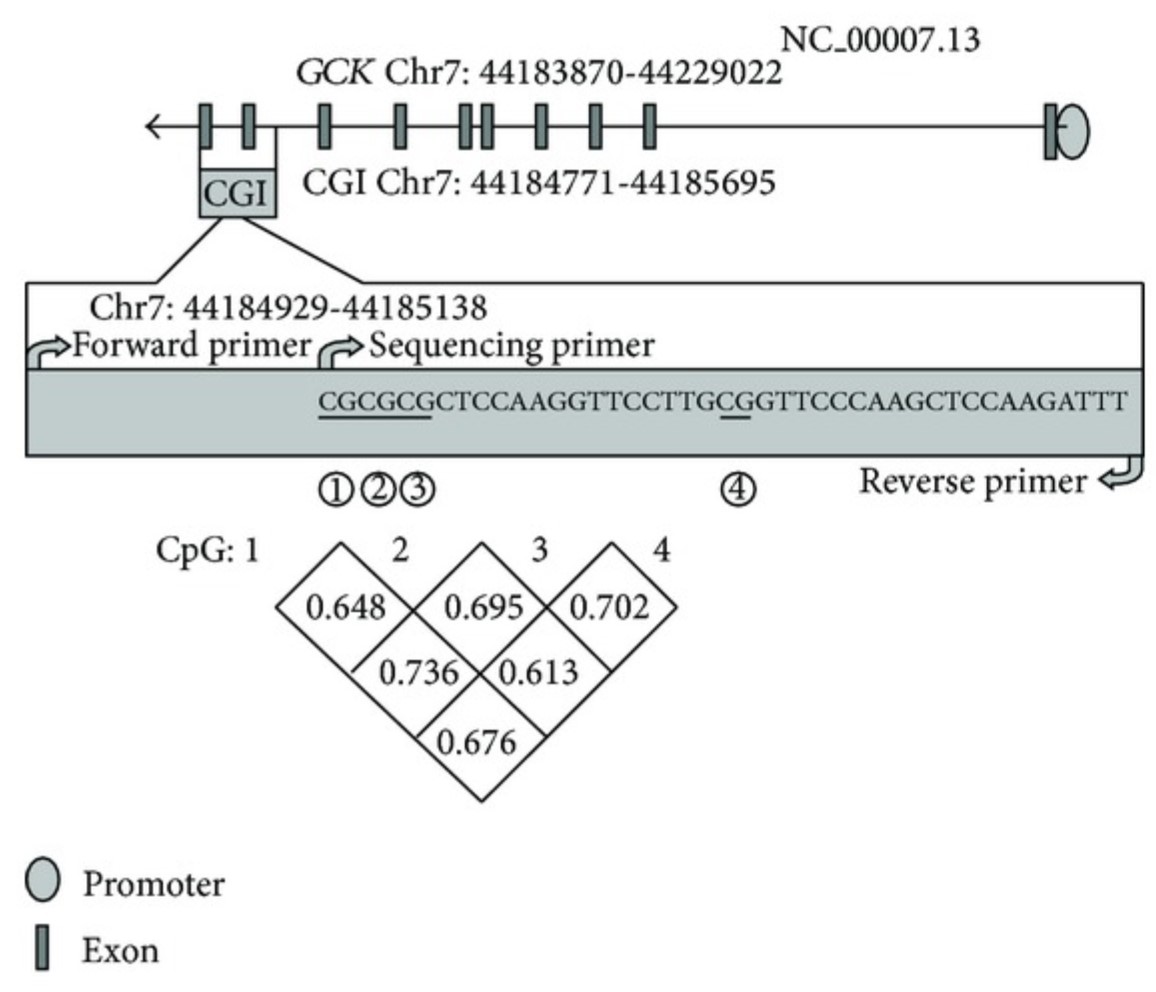
Fig1. The four tested CpG sites in GCK gene.
What is GCK protein?
GCK (glucokinase) is a protein coding gene which situated on the short arm of chromosome 7 at locus 7p13. Alternative splicing of this gene results in three tissue-specific forms of glucokinase, one found in pancreatic islet beta cells and two found in liver. The protein localizes to the outer membrane of mitochondria. In contrast to other forms of hexokinase, this enzyme is not inhibited by its product glucose-6-phosphate but remains active while glucose is abundant. The GCK protein is consisted of 465 amino acids and its molecular mass is approximately 52.2 kDa.
What is the function of GCK protein?
GCK protein (glucokinase C protein) is a protein that is widely found in the liver and other tissues. Its main function is to regulate blood sugar levels. Specifically, GCK protein can promote the uptake and utilization of glucose by liver cells, thereby reducing blood sugar concentrations. In addition, GCK protein can inhibit the processes of glycogen synthesis and gluconeogenesis, further maintaining the stability of blood sugar levels. In addition to regulating blood sugar, GCK protein is involved in many other biological processes, such as fatty acid metabolism, energy metabolism, and inflammatory responses. Therefore, GCK protein is considered to be an important metabolic regulatory factor.
GCK related Signaling pathways
The signaling pathways related to GCK are primarily involved in glucose homeostasis and insulin secretion. In insulin signaling pathway, insulin activates GCK in the liver and pancreatic beta cells through the phosphatidylinositol 3-kinase (PI3K)/AKT pathway, leading to increased glucose uptake and glycolysis. While in glucagon signaling pathway, glucagon inhibits GCK in the liver through the cAMP/protein kinase A (PKA) pathway, helping to regulate glucose production.
GCK Related Diseases
Mutations in this gene have been associated with non-insulin dependent diabetes mellitus (NIDDM), maturity onset diabetes of the young, type 2 (MODY2) and persistent hyperinsulinemic hypoglycemia of infancy (PHHI).
Bioapplications of GCK
Bioapplications of GCK include its potential as a therapeutic target for diabetes and metabolic disorders. Modulating GCK activity or expression could help regulate glucose metabolism and blood sugar levels. Additionally, studying GCK and its signaling pathways provides insights into the mechanisms underlying glucose homeostasis and may contribute to the development of novel treatments for metabolic diseases.
High Purity
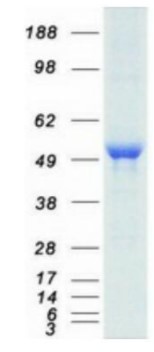
Fig1. SDS-PAGE (GCK-1984HFL) (PROTOCOL for western blot)
.
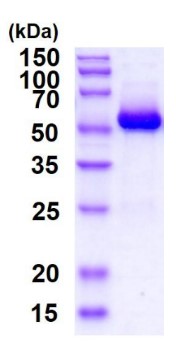
Fig2. SDS-PAGE (GCK-005H)
Case Study 1: Xiaodan Ren, 2023
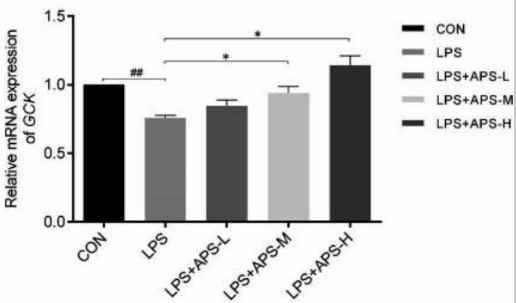
Fig1. Astragalus polysaccharide (APS) restored GCK.
Case Study 2: Jia Liu, 2023
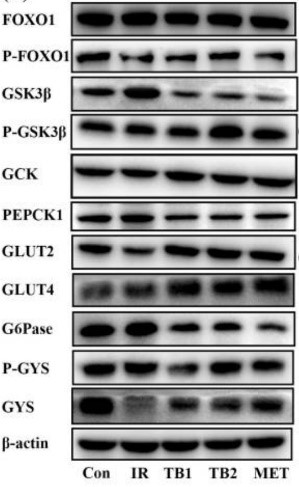
Fig2. TB treatment ameliorated expression of genes and proteins related to glucose metabolism.
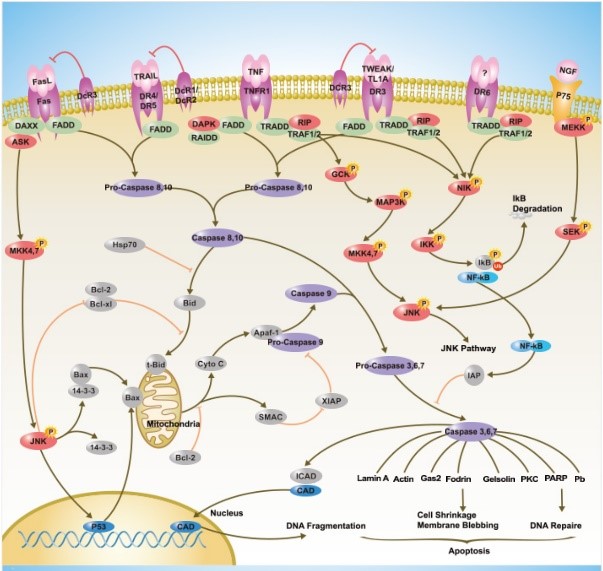
Death Receptor signaling pathway from Sino Biological.
GCK involved in several pathways and played different roles in them. We selected most pathways GCK participated on our site, such as , which may be useful for your reference. Also, other proteins which involved in the same pathway with GCK were listed below. Creative BioMart supplied nearly all the proteins listed, you can search them on our site.
| Pathway Name | Pathway Related Protein |
|---|
GCK has several biochemical functions, for example, . Some of the functions are cooperated with other proteins, some of the functions could acted by GCK itself. We selected most functions GCK had, and list some proteins which have the same functions with GCK. You can find most of the proteins on our site.
| Function | Related Protein |
|---|
GCK has direct interactions with proteins and molecules. Those interactions were detected by several methods such as yeast two hybrid, co-IP, pull-down and so on. We selected proteins and molecules interacted with GCK here. Most of them are supplied by our site. Hope this information will be useful for your research of GCK.
PFKFB1; GCKR; Pfkfb3; Pfkfb1; Gckr
- Q&As
- Reviews
Q&As (5)
Ask a questionClinical trials exploring ERBB3 inhibitors or drugs targeting the ERBB3 pathway are ongoing to evaluate their effectiveness and safety.
Yes, combining ERBB3 inhibitors with other targeted therapies or chemotherapy is being explored to enhance treatment efficacy.
ERBB3 activation has been associated with resistance to some targeted therapies, such as EGFR inhibitors, making it a challenging target in cancer treatment.
Yes, elevated ERBB3 expression has been linked to poor prognosis in certain cancers, serving as a potential biomarker for patient outcomes.
ERBB3 can form heterodimers with other EGFR family members, such as EGFR and HER2, leading to the activation of downstream signaling pathways.
Customer Reviews (3)
Write a reviewI confidently recommend the GCK protein to any researcher seeking a superior protein that not only fulfills their experimental needs but is also backed by unparalleled support from the manufacturer.
This has greatly facilitated my experimental workflow, ensuring a readily available and dependable protein source whenever I need it.
Its high quality, coupled with the manufacturer's exceptional technical support, make it a reliable and effective choice for addressing my scientific inquiries.
Ask a Question for All GCK Products
Required fields are marked with *
My Review for All GCK Products
Required fields are marked with *


